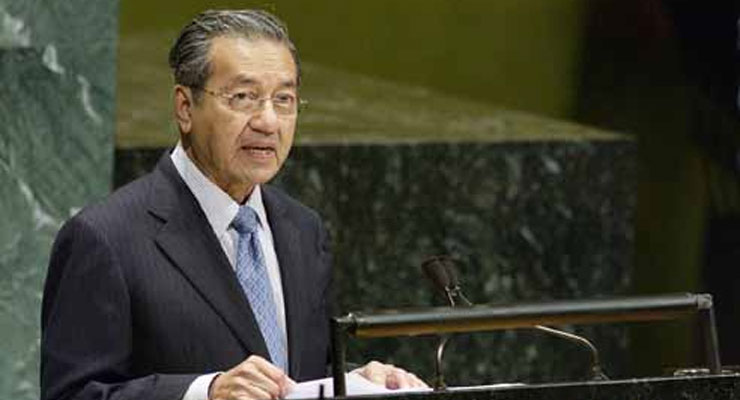
From VOA – ENGLISH
Malaysia’s historic general election last week was the first upset of the National Front coalition, which has ruled since independence in 1961. In large part this was the result of the grass-roots efforts of citizens to vote against formidable odds: Their electoral boundaries were redrawnto favor the National Front, election day was a Wednesday, and citizens found out they had to have registered by December 2017 — five months before an election that was announced in April — to be allowed to vote.
Beyond that, there were many smaller roadblocks, such as voters could be prevented from voting if they were deemed to be wearing the wrong clothes, or poorly trained polling booth officials might forget to stamp (and thus invalidate) a ballot.
Many Malaysians spontaneously defended polling stations Wednesday night from widespread rumored threats, such as phantom ballot boxes, said Liyana Yusof, a civic activist in Kuala Lumpur with the nonprofit youth voting campaign called Watan.
“It wasn’t really planned in advance,” she said, speaking two days after the election. “I just went to the polling station nearest to me on election night — it happened to be Lembah Pantai [district in southwestern Kuala Lumpur], and stayed there for four hours to see if police tried anything funny, like smuggling in ballot boxes.”
Residents of another neighborhood called Setia Alam, in Selangor state, locked in their polling station officials with a bicycle lock until they agreed to stamp and release the results, which registered an opposition win.
“That’s just part of the deal with voting here,” Yusof said, matter-of-factly. “In the last election, I was part of a human chain of people who defended our polling station.”
From civil society to parliament
Another civil society movement that laid some groundwork for the mass turnout and anti-corruption sentiment in this election is called “Bersih,” the Malay word for “clean.” Bersih has been advocating for electoral reform in Malaysia since 2006. Bersih rallies have blanketed the capital several times in a sea of yellow shirtsto protest corruption, electoral fraud, and roadblocks to free elections.
“The big win for us was to bring awareness that the system is rotten,” said Maria Chin Abdullah, an activist who ran Bersih for 10 years. “Holding mass rallies in Malaysia was really a big leap forward. Our people don’t usually do that. It was a sign that people have simply had enough of this corruption.”
She spoke to VOA from her campaign headquarters one day before the election.
In what now seems like a portent of change, Abdullah, 62, left Bersih to run for parliament herself this year, under the Alliance banner. The woman who oversaw Bersih’s transition from a government initiative to a fully independent civil society movement will now take a seat of her own in the legislature.
“The big problem this year was that the Election Commission has been setting up new laws almost every day,” she said. “Bersih members were supposed to have access to ballot boxes in police offices, which have been denied. And then there is the insane scale of vote buying: [the National Front] is distributing flat-screen TV’s and motorbikes. It’s just an unlevel playing field.”
What’s next?
Abdullah’s top policy agenda items within the new administration are electoral reform, mainstreaming gender equality, and resolving local constituency issues like affordable housing, she told VOA.
“We should provide training to increase women’s participation at all levels of the decision-making process and have affirmative action to increase the minimum portion of female members of parliament to 30 percent,” she said.
More broadly, Bersih’s work certainly paved the way for this historic election, Abdullah said.
“It laid the foundation for the rakyat [people] to claim their rights of expression, assembly, and association,” she said.
Abdullah is personally against the “first-past-the-post” parliamentary system that is in place in Malaysia, by which the candidate with the most votes in a constituency wins and becomes the MP for that seat. She says that system makes it too easy for parties or coalitions to rule without the popular vote, which happened for the National Front in 2013.
Still, even within that possibly flawed system, the obstacles to voting this year were easily conquered roadblocks in retrospect, said James Chin of the University of Tasmania. The last prime minister, Najib Razak, was embroiled in a scandal in which he was accused of stealing almost $700 million from a state-owned development fund, and his National Front coalition had, in six decades of unchallenged rule, grown out of touch with its voter base.
“Even the Wednesday [election day] had no impact,” Chin said. “Malaysians were so angry with Najib that they were willing to sacrifice their leave and everything in order to, as the Americans say, whack him. They wanted to whack him.”
Leave a Reply